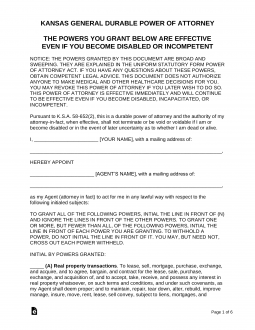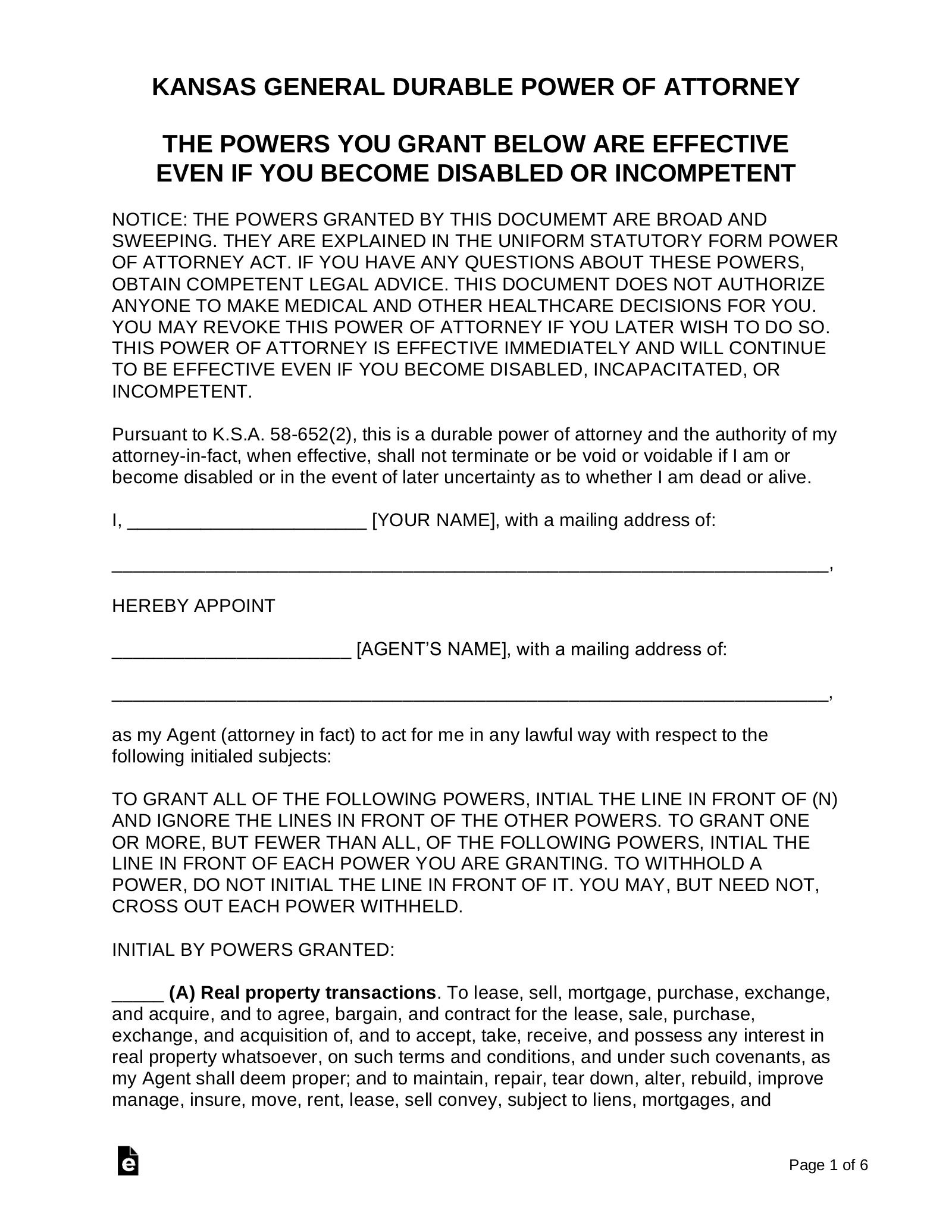Updated March 19, 2024
A Kansas power of attorney lets an individual (principal) choose an agent to handle decisions on their behalf. The agent granted the authority to manage financial, medical, and any special requests made by the principal. It is recommended that the agent be a trusted person since they commonly possess broad powers over the principal.
By Type (9) |
 Durable (Financial) Power of Attorney – This type appoints a representative to handle your general financial affairs and other matters. Durable (Financial) Power of Attorney – This type appoints a representative to handle your general financial affairs and other matters.
Download: PDF, MS Word, OpenDocument Signing Requirements (§ 58-652(3)): Notary public. |
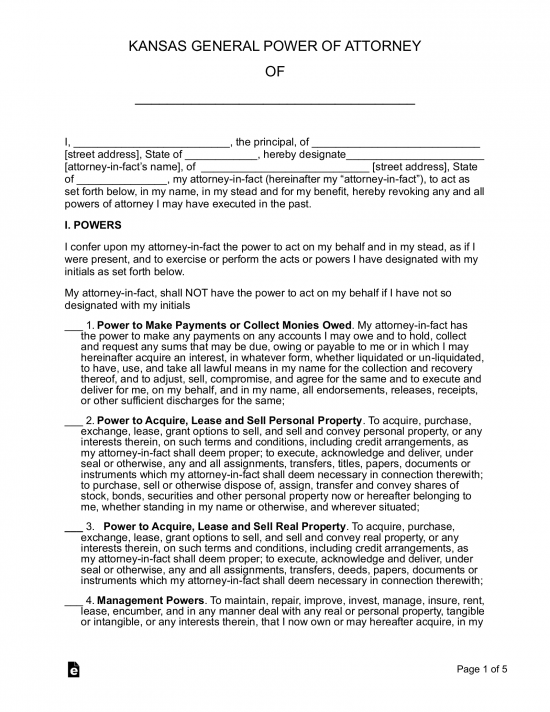 General (Financial) Power of Attorney – Similar to the durable version although will not remain valid if the principal becomes incapacitated. General (Financial) Power of Attorney – Similar to the durable version although will not remain valid if the principal becomes incapacitated.
Download: PDF, MS Word, OpenDocument Signing Requirements (§ 58-652(3)): Notary public. |
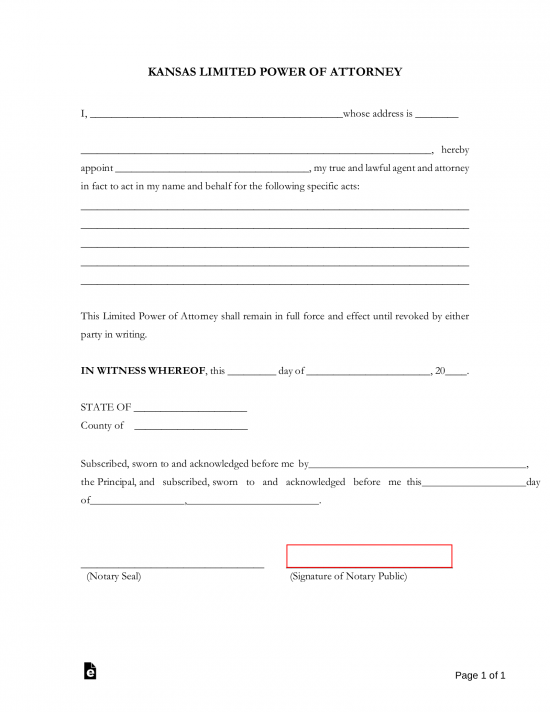 Limited Power of Attorney – This type is used for certain specific matters or time periods. It is limited by time and circumstance as the principal determines. Limited Power of Attorney – This type is used for certain specific matters or time periods. It is limited by time and circumstance as the principal determines.
Download: PDF, MS Word, OpenDocument Signing Requirements (§ 58-652(3)): Notary public. |
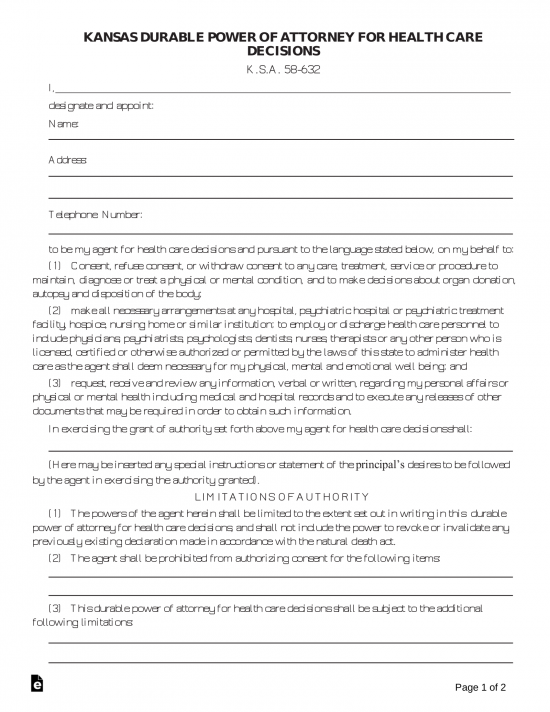 Medical Power of Attorney – To select an agent to represent one’s medical decisions in the event a person cannot speak for themselves. Medical Power of Attorney – To select an agent to represent one’s medical decisions in the event a person cannot speak for themselves.
Download: PDF, MS Word, OpenDocument Signing Requirements (§ 58-632): Two (2) witnesses and a notary public. |
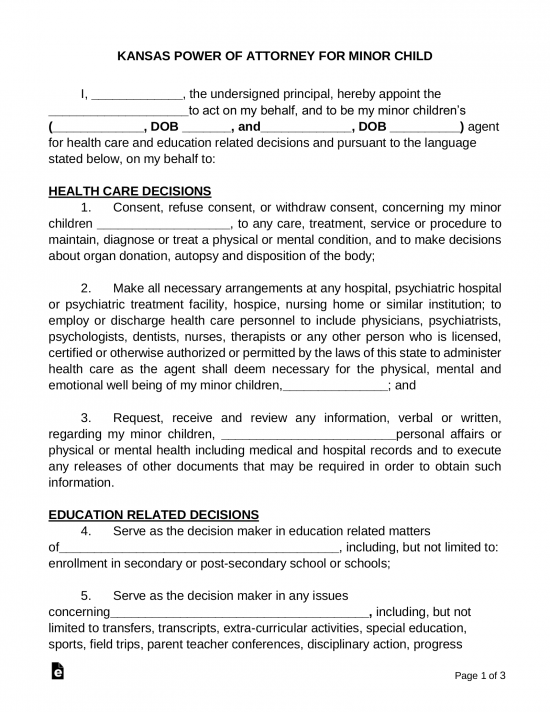 Minor (Child) Power of Attorney – Used when parents need to leave their children in the charge of someone else if they anticipate being away for a period of time. Minor (Child) Power of Attorney – Used when parents need to leave their children in the charge of someone else if they anticipate being away for a period of time.
Download: PDF, MS Word, OpenDocument Signing Requirements (Senate Bill No. 148 (Safe Families Act)): Notary public. |
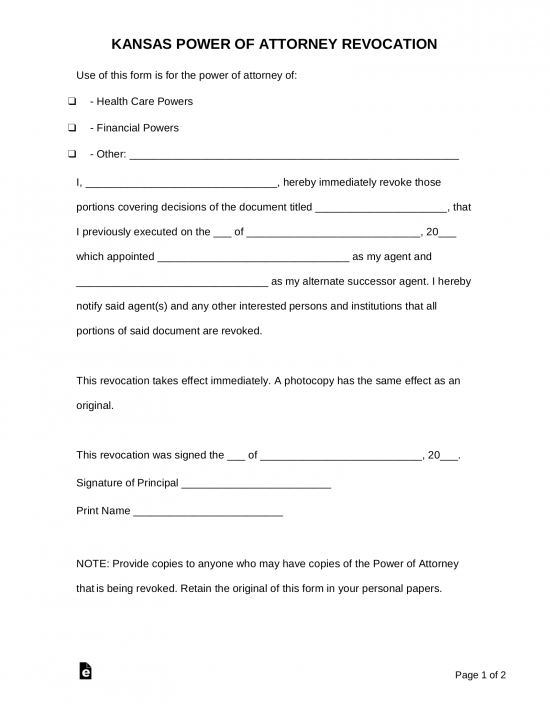 Revocation of Power of Attorney – This is not a power of attorney document, but it is used to terminate a current and valid form. Revocation of Power of Attorney – This is not a power of attorney document, but it is used to terminate a current and valid form.
Download: PDF, MS Word, OpenDocument Signing Requirements (§ 58-652(3)): Notary public. |
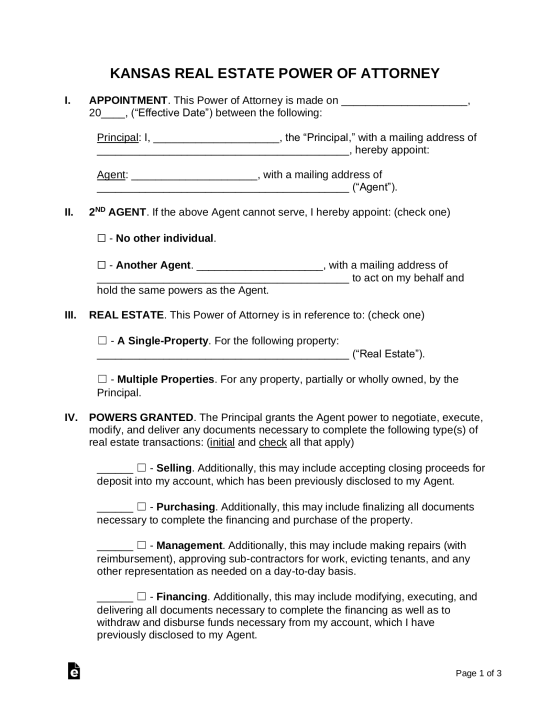 Real Estate Power of Attorney – To elect an individual to have the decision-making power to close or negotiate a real property transaction. Real Estate Power of Attorney – To elect an individual to have the decision-making power to close or negotiate a real property transaction.
Download: PDF, MS Word, OpenDocument Signing Requirements (§ 58-652(3)): Notary public. |
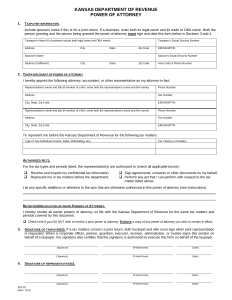 Tax Power of Attorney (Form DO-10) – Used when you need someone to represent your interests with the tax authorities in Kansas. Tax Power of Attorney (Form DO-10) – Used when you need someone to represent your interests with the tax authorities in Kansas.
Download: PDF, MS Word, OpenDocument Signing Requirements: The principal and their representative. |
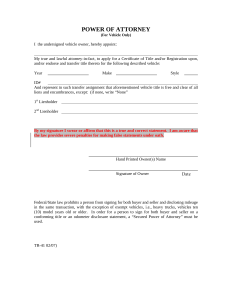 Vehicle Power of Attorney (Form TR-41) – Used when you need a representative to handle your interests related to your motor vehicle in front of the Kansas Division of Vehicles. Vehicle Power of Attorney (Form TR-41) – Used when you need a representative to handle your interests related to your motor vehicle in front of the Kansas Division of Vehicles.
Download: PDF, MS Word, OpenDocument Signing Requirements: Principal only. |

